A Year of Awakenings
2011 was the year of change. All over the world, from the Tahrir Square of Cairo to the streets of Athens, the spirit of dissent led people to march against unaccountable politicians and corrupt institutions. People were brought together under their collective demand for change. And while scandals erupted and nature wreaked havoc in many parts of the world, this year the real force to be reckoned with were the people.
The Beginning of the End?
News of the World, a British tabloid magazine which was part of Rupert Murdoch’s media conglomerate, News Corporation, was accused of engaging in phone hacking in pursuit of news stories since 2006, but it wasn’t until this year that the full extent of their operation was revealed. Once reports came out that the phones of murdered schoolgirl Milly Dowlar and victims of the 7/7 London bombings were also accessed, public outcry against News Corp and Murdoch, as well as boycotts by advertisers led to the closure of News of the World in July after 168 years of publication.
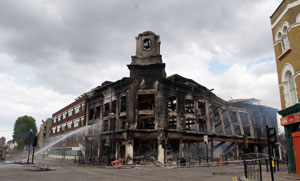 London Burning
London Burning
In August, following a peaceful march held in Tottenham, North London, to protest the fatal shooting of Mark Duggan by the police, riots broke out in London and eventually spread to other parts of England. The riots, which went on for several days, were characterised by rampant looting and arson attacks of unprecedented levels. Five people, including three of Pakistani origin, died and an estimated £200 million worth of property damage was incurred. Several reasons, ranging from unemployment to sheer criminal opportunism, have been cited to explain the riots.
 From “Waity Katy” to the Duchess of Cambridge
From “Waity Katy” to the Duchess of Cambridge
In the biggest royal event since Prince Charles married Lady Diana in 1981, the entire world watched as Prince William, the future King of England, married his college sweetheart, Katherine Middleton at Westminster Abbey, London, in April. The day of the wedding was declared a public holiday in England, as over 5,000 street parties were held throughout the country to celebrate with the happy couple.
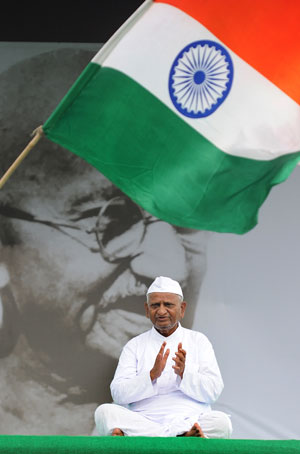 A One-Man Movement
A One-Man Movement
Anna Hazare, the 74-year-old Indian social activist with a Gandhian air, became the face of the ongoing anti-corruption movement in India in April when he went on an indefinite hunger strike to exert pressure on the government to pass a stringent anti-corruption law, as outlined in the Jan Lokpal Bill. This fast led to nationwide demonstrations in support of Hazare and the campaign, and the government agreed to table the bill in parliament, where it is currently still being debated.
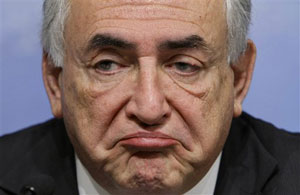 END OF CAREER
END OF CAREER
At the beginning of 2011, Dominique Strauss-Kahn was the respected director of the International Monetary Fund, as well as the leading candidate for the 2012 French Presidency. All of this changed when, in May, a hotel maid accused him of sexually assaulting her in a hotel room. He resigned from his position at the IMF four days after his arrest. Although charges against Kahn were dropped due to a lack of conclusive physical evidence and doubts about the maid’s credibility, the scandal seems to have put an end to his political career.
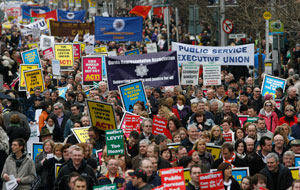 EU: On Its Last Legs?
EU: On Its Last Legs?
Since the fall of 2009, the European Union has been struggling with an ever-increasing crisis over its enormous debts. This year, the crisis reached a crescendo and by August, European leaders were struggling to come to an agreement about the best course of action to be taken. The financial crisis eventually became a political one, with governments of Greece, Portugal, Ireland and Italy being ousted and tens of thousands took to the streets in Greece and Spain in protest.
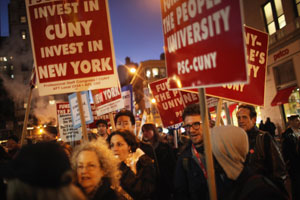 The 1% Against the 99%
The 1% Against the 99%
Inspired by the persistence of Egyptian protestors, a Canadian activist group, Adbusters, initiated the Occupy Wall Street movement to protest against economic and social inequality in the US, with over 200 protestors camping out in New York’s financial Wall Street and refusing to leave. Since its initiation in September, the movement has gained momentum, spread to numerous cities in the US and around the world, and is still ongoing. As the movement is leaderless and largely unstructured, it is unclear whether it will have any lasting political effects. But the persistence of the occupants alone has made it a significant event of 2011.
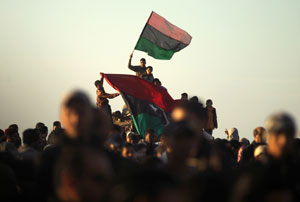 A Season of Revolutions
A Season of Revolutions
At the end of 2010, a vegetable seller in Tunisia set fire to himself when the police seized his cart. His act of desperation set in motion a series of pro-democracy rebellions across the Middle East. Following the uprising in Tunisia, unrest spread to Algeria and then to Egypt, where millions of young protestors took to the streets to demand the resignation of Egyptian president, Hosni Mobarak. In February, after 18 days of mass protest, Mobarak stepped down from office. Protests moved to Syria and Yemen, and the unrest led to a civil war in Libya, which ended with Muammar Gaddafi — the Libyan dictator of over 42 years — being overthrown and later killed in October.
Nature Wreaks Havoc
While 2010 was termed the “Deadliest Year in a Generation,” this year was not far behind in terms of natural disasters. From the earthquake and tsunami that hit Japan in March to the floods in Thailand in October, 2011 brought with it many calamities across the world.
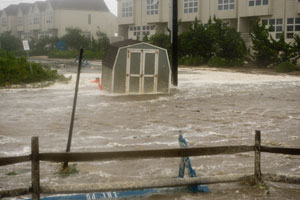 Hurricane Irene
Hurricane Irene
In August, a powerful Atlantic hurricane hit the United States East Coast, leaving extensive flood and wind damage in its wake.
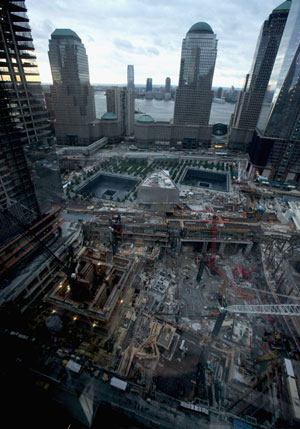 Earthquake and tsunami in Japan
Earthquake and tsunami in Japan
In March, an earthquake of 9.0 magnitude hit Japan, causing more than 15,000 deaths. The earthquake, which was the most powerful to ever hit Japan, also resulted in a major tsunami of over 30 metres, which brought destruction along the Pacific coast of Japan’s northern island
 Thailand Floods
Thailand Floods
Floods ravaged Thailand during the monsoon season, affecting more than 12.8 million people. As of December 2011, many areas remain under six feet of water.
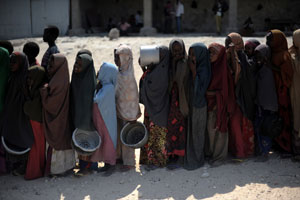 Horn of Africa Famine
Horn of Africa Famine
A severe drought has swept over the entire East African region since July, causing a food crisis in Somalia, Ethiopia and other countries in and around the Horn of Africa. This famine threatens the lives of more than 13.3 million people.
Nudrat Kamal teaches comparative literature at university level, and writes on literature, film and culture.



